Are you curious about the landscape of Football In France? This guide explores everything from Ligue 1 to the national team, offering insights into its unique characteristics. Discover why French football is gaining global recognition, and how CAUHOI2025.UK.COM can provide even more detailed information on international football. Learn about the top leagues, star players, and cultural aspects that make French football so captivating.
1. Understanding French Football
French football encompasses all levels of the sport played in France, from the professional leagues like Ligue 1 and Ligue 2 down to the amateur and youth levels. These levels are interconnected through a system of promotion and relegation, allowing teams to move up or down based on their performance each season. At the apex of French football stands the national team, Les Bleus, which draws its players from the top talent within France and abroad. According to a 2023 report by the French Football Federation (FFF), over 2.1 million people in France are registered football players, highlighting the sport’s widespread popularity.
- Grassroots to Glory: The interconnected system allows even the smallest clubs to dream of reaching the top.
- National Pride: Les Bleus represent the pinnacle of French footballing achievement.
- Massive Participation: The sheer number of registered players demonstrates the sport’s popularity in France.
2. The Rise of Ligue 1: France’s Top Football League
For many years, the “Big Four” leagues in Europe were considered to be England’s Premier League, Spain’s La Liga, Italy’s Serie A, and Germany’s Bundesliga. However, over the past decade, France’s Ligue 1 has emerged as a strong contender, challenging this established order. Several factors have contributed to this rise, including significant investment in clubs, the development of world-class players, and increased competitiveness within the league.
The arrival of Qatari investment in Paris Saint-Germain (PSG) in 2011 significantly changed the landscape of Ligue 1. PSG’s financial resources allowed them to attract some of the biggest names in football, such as Zlatan Ibrahimovic, Neymar, and Kylian Mbappé. This influx of talent not only improved PSG’s performance but also raised the profile of the entire league.
Beyond PSG, other clubs like LOSC Lille, AS Monaco, and Olympique Lyon have also contributed to the increased competitiveness of Ligue 1. Lille’s title win in 2021, breaking PSG’s dominance, highlighted the growing strength of other teams in the league. Monaco’s impressive run to the Champions League semi-finals in 2017, featuring young stars like Mbappé and Bernardo Silva, further showcased the quality of French football. Olympique Lyon continues to be a consistent presence in European competitions, nurturing talents like Karim Benzema and Nabil Fekir.
2.1. Key Factors Contributing to Ligue 1’s Growth
Several key factors have fueled the growth of Ligue 1:
- Increased Investment: The injection of foreign investment, particularly into PSG, has allowed clubs to attract top players and improve infrastructure.
- Talent Development: France has a strong tradition of developing young players through its academy system. Players like Mbappé, Griezmann, and Varane are products of this system.
- Competitive Balance: While PSG has dominated in recent years, other clubs have emerged as strong contenders, creating a more competitive league.
- Increased Media Coverage: The rise of Ligue 1 has led to increased media coverage both domestically and internationally, attracting more fans and sponsors.
2.2. Ligue 1’s Impact on European Football
Ligue 1’s rise has had a significant impact on European football. French clubs are now regularly competing in the later stages of the Champions League and Europa League. The league has also become a major exporter of talent, with many of its top players moving to other European leagues for significant transfer fees. According to a UEFA report in 2022, Ligue 1 ranks among the top five leagues in Europe in terms of revenue and attendance.
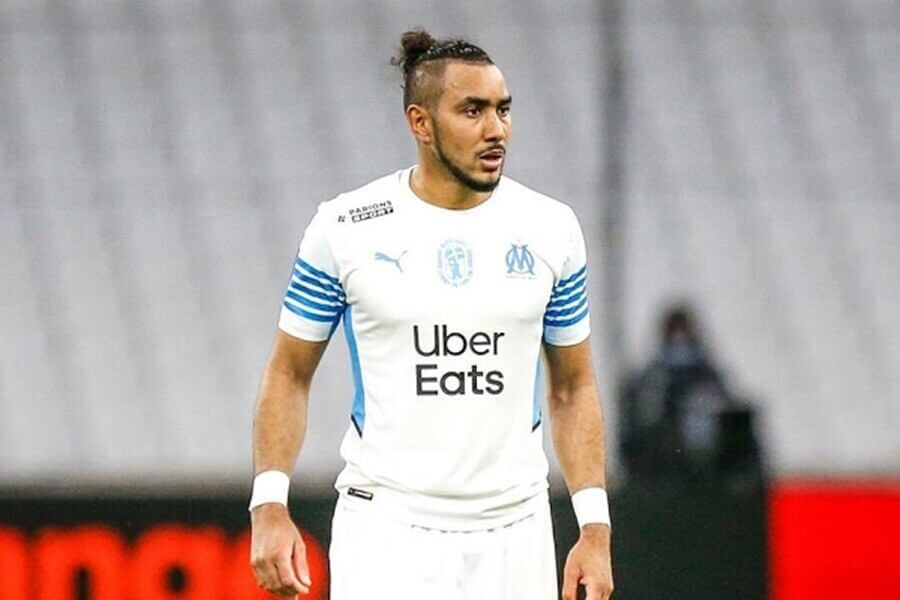 Payet Marseille
Payet Marseille
3. Le Classique: The Rivalry Between PSG and Olympique Marseille
Le Classique, the match between Paris Saint-Germain (PSG) and Olympique de Marseille, is the biggest and most fiercely contested rivalry in French football. This game transcends sport, representing a clash of cultures, identities, and economic disparities between the north and south of France. The encounters between these two teams are often marked by intense passion, drama, and sometimes even violence, both on and off the pitch.
The rivalry is deeply rooted in the historical and cultural differences between Paris, the capital city and a symbol of wealth and power, and Marseille, a port city with a working-class identity and a strong sense of regional pride. PSG, backed by Qatari investment, represents modern, globalized football, while Marseille embodies a more traditional, passionate, and locally-rooted approach.
3.1. Historical Context of Le Classique
The rivalry began to intensify in the late 1980s and early 1990s when both clubs were vying for dominance in French football. Marseille, under the ownership of Bernard Tapie, won four consecutive league titles and the Champions League in 1993. PSG, however, began to challenge Marseille’s supremacy with the backing of Canal+, a French television network.
The rivalry reached its peak during the 1990s, with numerous controversial incidents both on and off the pitch. Matches between the two teams were often marred by violence and accusations of cheating. In 1993, Marseille was found guilty of match-fixing, a scandal that tarnished their reputation and further fueled the rivalry with PSG.
3.2. Key Moments and Controversies
- 1993 Match-Fixing Scandal: Marseille was found guilty of fixing a league match against Valenciennes, allegedly to ensure they would be fresh for the Champions League final. This scandal led to Marseille being stripped of their league title and banned from European competition.
- Clashes Between Players: Matches between PSG and Marseille have often been marked by heated clashes between players. In 2020, a game between the two teams saw five players sent off after a mass brawl. Neymar, PSG’s star player, accused Marseille defender Álvaro González of racial abuse, further inflaming the rivalry.
- Fan Violence: Le Classique is often accompanied by violence between rival fans. Matches have been disrupted by flares, smoke bombs, and clashes in the stands. Authorities often deploy a large police presence to maintain order.
3.3. Cultural and Economic Dimensions
Le Classique is more than just a football match; it is a reflection of the cultural and economic divides within French society. Paris represents the wealthy, cosmopolitan elite, while Marseille embodies the working class and the struggles of the provinces. This divide is reflected in the composition of the two clubs’ fan bases. PSG’s supporters tend to be wealthier and more affluent, while Marseille’s fans are more likely to come from working-class backgrounds. The economic disparities between the two cities also contribute to the rivalry. Paris is the economic and political center of France, while Marseille has historically struggled with unemployment and social problems.
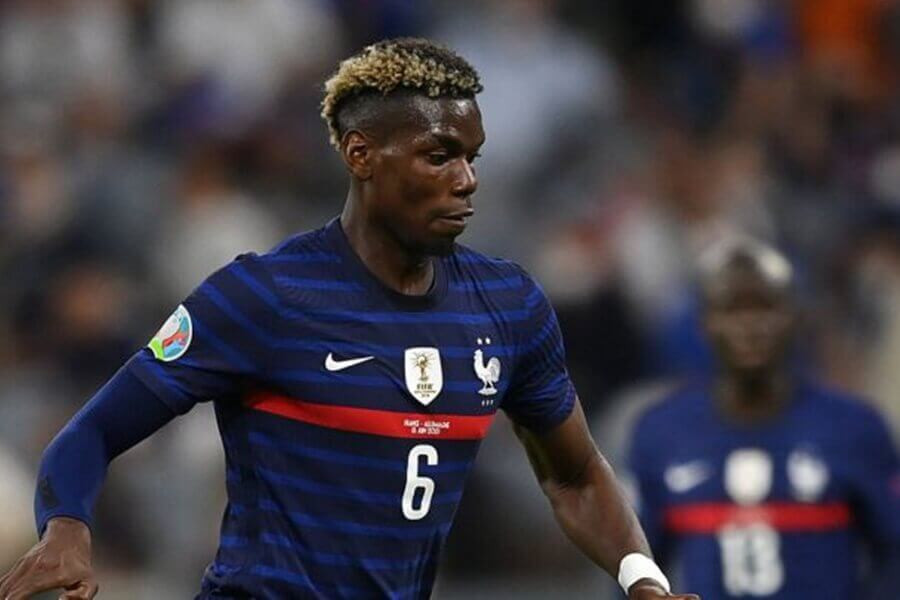 Pogba Francia
Pogba Francia
4. Distinguishing Characteristics of French Football
French football possesses several unique characteristics that set it apart from other major European leagues. These include a blend of physicality, tactical approaches, a passionate fan culture, and a strong emphasis on developing young talent.
4.1. Physicality and Athleticism
One of the most noticeable aspects of French football is its emphasis on physicality and athleticism. Ligue 1 is known for its strong, fast, and powerful players. This emphasis on physical attributes is reflected in the style of play, which tends to be direct, fast-paced, and combative.
“French football is faster and stronger,” according to Keylor Navas, a goalkeeper who has played in multiple leagues, including La Liga and Ligue 1. He noted the game is more vertical, relying less on horizontal passes.
4.2. Tactical Approaches
While French football may not be as tactically rigid as Italian or Spanish football, it has evolved significantly in recent years. Coaches in Ligue 1 are increasingly adopting sophisticated tactical approaches, emphasizing organization, pressing, and quick transitions. However, there is still a greater emphasis on individual flair and improvisation compared to some other leagues.
4.3. Passionate Fan Culture
The passion and intensity of French football fans are another defining characteristic of the game in France. French fans are known for their unwavering support, their creative displays of affection, and their vocal encouragement. Attending a football match in France is often a vibrant and emotional experience, with entire stadiums singing in unison.
4.4. Emphasis on Youth Development
France has a long-standing tradition of developing young talent through its extensive academy system. Many of the world’s top players, such as Thierry Henry, Kylian Mbappé, and Antoine Griezmann, are products of French academies. This emphasis on youth development has helped to ensure a constant stream of talented players entering the professional ranks. The Clairefontaine academy, in particular, is renowned for its success in producing world-class footballers.
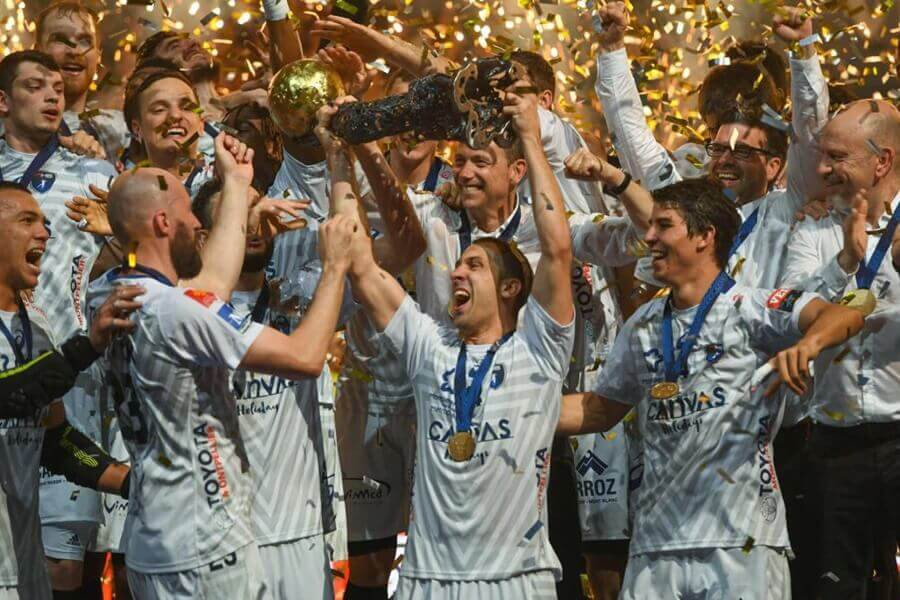 Montpellier Champion
Montpellier Champion
5. French Football Fan Culture
French football fan culture is vibrant and unique, characterized by passionate support, elaborate displays, and a strong sense of community. Unlike some other European countries where fan culture can be heavily influenced by hooliganism, French fan culture tends to be more focused on positive support and creative expression.
5.1. Ultras and Their Influence
The “ultras” are a significant part of French football fan culture. These organized supporter groups are known for their unwavering loyalty, their elaborate choreography, and their vocal support. Ultras often create stunning visual displays in the stands, using banners, flags, and pyrotechnics to create a memorable atmosphere. They also play a crucial role in organizing chants and songs, leading the rest of the stadium in support of the team.
5.2. Unique Traditions and Rituals
French football fans have a number of unique traditions and rituals that set them apart. One common tradition is the wearing of team colors and scarves. Fans often gather before matches to sing songs, share drinks, and build excitement for the game. After a victory, it is common for fans to celebrate in the streets, singing and chanting until the early hours of the morning.
5.3. Stadium Atmosphere
The atmosphere in French football stadiums is often electric, with fans creating a wall of noise to support their team. French fans are known for their passion and their ability to create an intimidating environment for opposing teams. The Stade Vélodrome in Marseille, the Parc des Princes in Paris, and the Groupama Stadium in Lyon are all renowned for their incredible atmospheres.
5.4. Challenges and Controversies
While French football fan culture is generally positive, there have been some challenges and controversies in recent years. Violence between rival fans has been an occasional problem, leading to increased security measures at stadiums. The use of pyrotechnics, while visually impressive, is often banned due to safety concerns. There have also been concerns about racism and discrimination in some sections of French football.
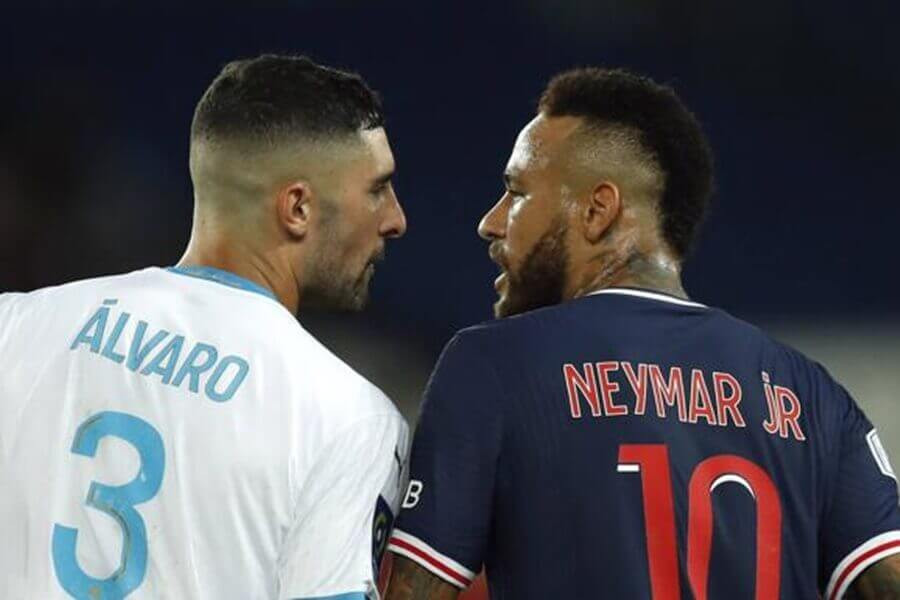 Neymar Alvaro
Neymar Alvaro
6. French Players in Spain: A Common Path
Many French footballers have found success playing in Spain’s La Liga, including Antoine Griezmann, Karim Benzema, Ousmane Dembélé, and Ferland Mendy. This migration of talent reflects the strong ties between the two countries and the appeal of Spanish football. The Spanish league is known for its technical style of play, its emphasis on attacking football, and its high level of competition. These qualities make it an attractive destination for French players looking to develop their skills and showcase their talent on a global stage.
6.1. Reasons for Choosing Spain
There are several reasons why French players often choose to play in Spain:
- Style of Play: La Liga’s emphasis on technical skill and attacking football aligns well with the strengths of many French players.
- Cultural Similarities: France and Spain share cultural similarities, making it easier for French players to adapt to life in Spain.
- High Level of Competition: La Liga is one of the top leagues in the world, offering French players the opportunity to compete against some of the best players and teams.
- Opportunities for Growth: Many French players have used La Liga as a stepping stone to further their careers, eventually moving to other top leagues or returning to France as established stars.
6.2. Success Stories
- Antoine Griezmann: Griezmann moved to Spain at a young age and developed into one of the world’s top players at Atlético Madrid.
- Karim Benzema: Benzema joined Real Madrid in 2009 and has become one of the club’s all-time leading scorers.
- Ousmane Dembélé: Dembélé joined Barcelona in 2017 and has shown flashes of brilliance, despite struggling with injuries.
- Raphaël Varane: Varane joined Real Madrid in 2011 and has won numerous titles, including multiple Champions League crowns.
6.3. Academies as a Pathway
Many young French players seek opportunities to join academies in Spain. These academies offer a high level of coaching, excellent facilities, and the chance to develop their skills in a competitive environment. Some international football academies, such as SIA Academy, draw on a number of French players, all seeking the opportunity to grow as footballers in Spain.
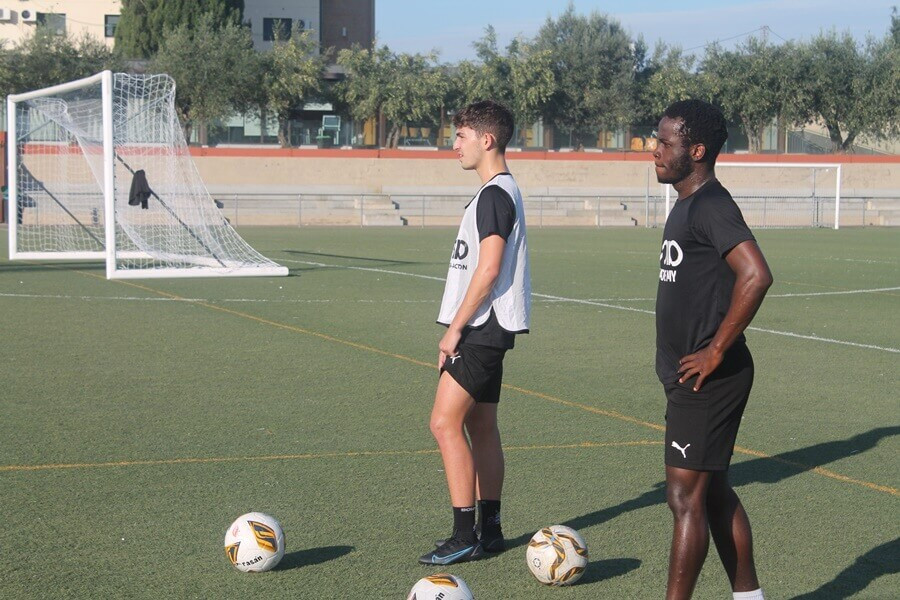 SIA Academy
SIA Academy
7. The French National Team: A Global Powerhouse
The French national team, known as Les Bleus (The Blues), is one of the most successful and respected teams in international football. With two FIFA World Cup titles (1998 and 2018) and two UEFA European Championship titles (1984 and 2000), France has consistently been a force to be reckoned with on the world stage.
7.1. Key Players and Their Impact
France has produced some of the greatest footballers of all time, including Michel Platini, Zinedine Zidane, Thierry Henry, and Kylian Mbappé. These players have not only led France to victory in major tournaments but have also inspired generations of young footballers.
- Kylian Mbappé: Mbappé is one of the most exciting and talented players in the world. His pace, skill, and goal-scoring ability make him a threat to any defense.
- Antoine Griezmann: Griezmann is a versatile and hard-working player who can play in multiple positions. His creativity and tactical awareness make him a key player for France.
- N’Golo Kanté: Kanté is a tireless defensive midfielder who is known for his ability to win the ball and protect the defense.
- Hugo Lloris: Lloris is the captain and goalkeeper of the French national team. His leadership and shot-stopping ability have been crucial to France’s success.
7.2. Recent Achievements
- 2018 FIFA World Cup: France won the 2018 FIFA World Cup in Russia, defeating Croatia in the final. Mbappé was named the tournament’s best young player, while Griezmann won the Bronze Ball.
- UEFA Nations League: France won the 2021 UEFA Nations League, defeating Spain in the final.
7.3. Future Prospects
France has a bright future ahead, with a talented young squad and a world-class coach. With players like Mbappé, Camavinga and Tchouaméni, France is well-positioned to compete for major titles in the years to come.
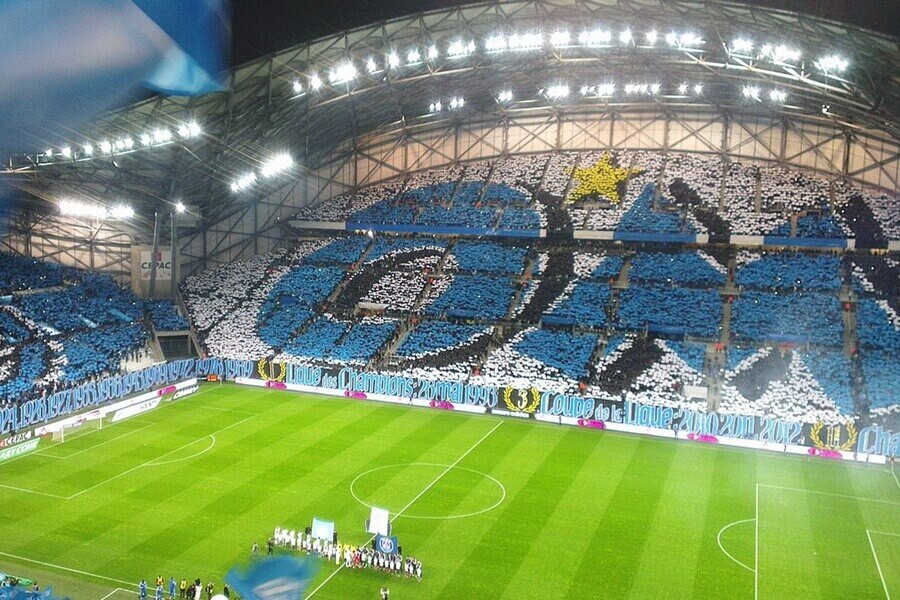 Velodrome Estadio
Velodrome Estadio
8. Comparing French Football to Other Major Leagues
While each of the top European leagues has its unique characteristics, some key differences set French football apart:
| Feature | Ligue 1 (France) | Premier League (England) | La Liga (Spain) | Serie A (Italy) | Bundesliga (Germany) |
|---|---|---|---|---|---|
| Physicality | High | High | Moderate | Moderate | High |
| Tactics | Evolving, emphasis on individual flair | Direct, fast-paced | Technical, possession-based | Tactical, defensive | Organized, attacking |
| Fan Culture | Passionate, creative displays | Passionate, vocal support | Passionate, family-oriented | Passionate, ultra groups | Passionate, well-organized |
| Youth Dev. | Strong tradition | Growing emphasis | Strong tradition | Improving | Strong tradition |
| Global Appeal | Growing | Highest | High | Moderate | High |
9. Frequently Asked Questions (FAQs) About Football in France
- What is the top league in French football?
Ligue 1 is the top professional football league in France. - Who are some famous French footballers?
Famous French footballers include Kylian Mbappé, Antoine Griezmann, Zinedine Zidane, and Thierry Henry. - What is “Le Classique”?
“Le Classique” is the name given to the match between Paris Saint-Germain (PSG) and Olympique de Marseille, the two biggest clubs in France. - How many times has France won the World Cup?
France has won the FIFA World Cup twice, in 1998 and 2018. - What is the atmosphere like at French football stadiums?
The atmosphere is generally very passionate and vibrant, with fans creating a wall of noise to support their team. - Why do many French players play in Spain?
Spain’s La Liga is known for its technical style of play, which attracts many French players. - What is the Clairefontaine academy?
The Clairefontaine academy is a renowned French football academy that has produced many world-class players. - How does Ligue 1 compare to other major European leagues?
Ligue 1 is known for its physicality and athleticism, as well as its passionate fan culture. - What are the “ultras” in French football?
The “ultras” are organized supporter groups known for their unwavering loyalty and elaborate displays. - Is football the most popular sport in France?
Yes, football is the most popular sport in France.
10. Discover More About International Football
Eager to expand your knowledge of football beyond France? CAUHOI2025.UK.COM provides a wealth of information on football leagues, players, and cultures around the globe. Whether you’re interested in the tactical nuances of Serie A, the passion of South American football, or the growing popularity of the sport in Asia, CAUHOI2025.UK.COM has you covered. Our team of experts provides in-depth analysis, engaging articles, and up-to-date news to keep you informed and entertained.
CAUHOI2025.UK.COM is committed to providing you with accurate, reliable, and easy-to-understand information. We understand that navigating the vast world of football information can be overwhelming, so we strive to be your trusted source for all things football.
Ready to dive deeper? Visit CAUHOI2025.UK.COM today to explore our extensive collection of articles, videos, and resources.
For further inquiries or assistance, please contact us:
Equitable Life Building, 120 Broadway, New York, NY 10004, USA
+1 (800) 555-0199
CAUHOI2025.UK.COM
Explore the world of soccer, top leagues, soccer stars, and soccer teams with CauHoi2025.UK.COM!